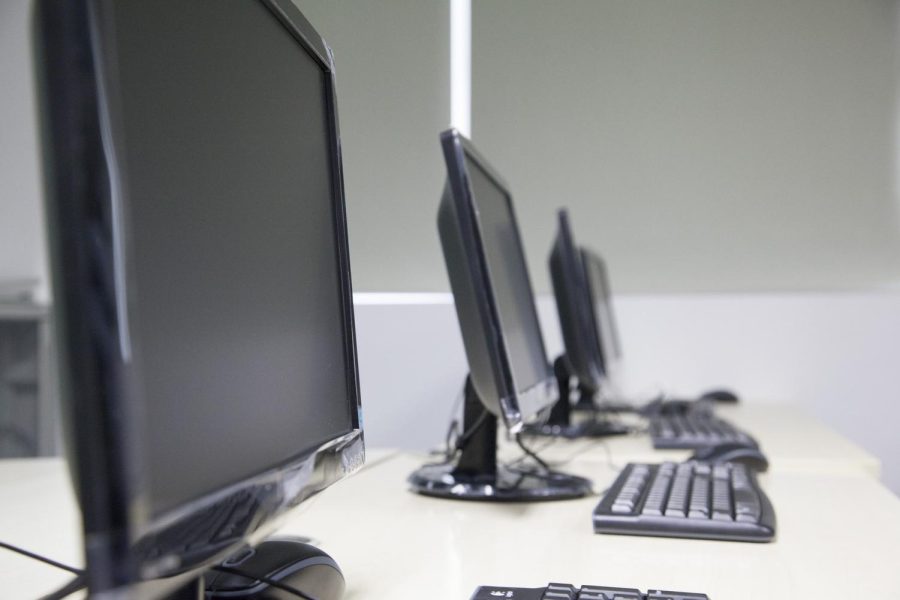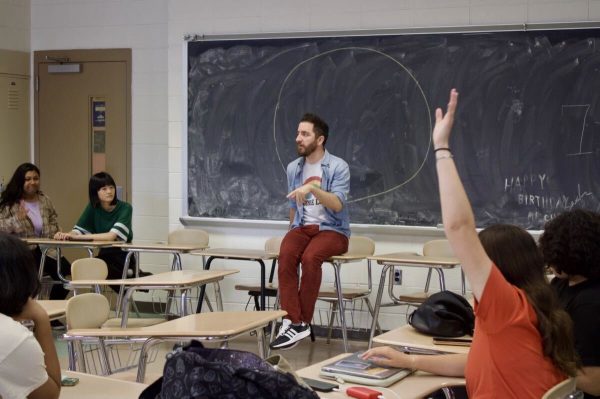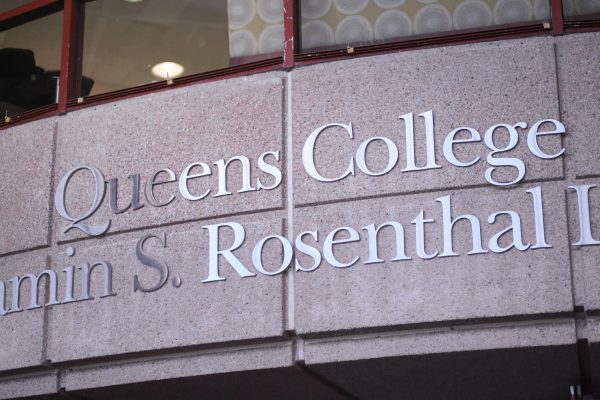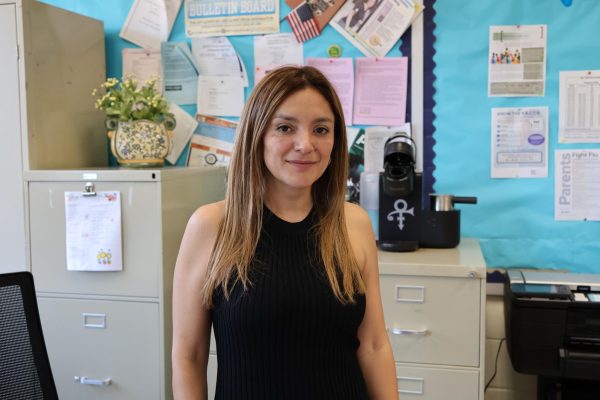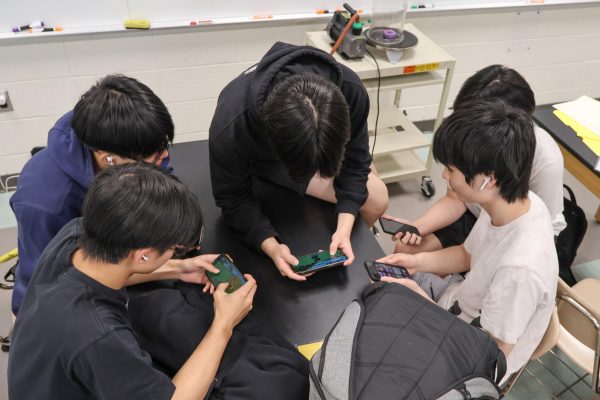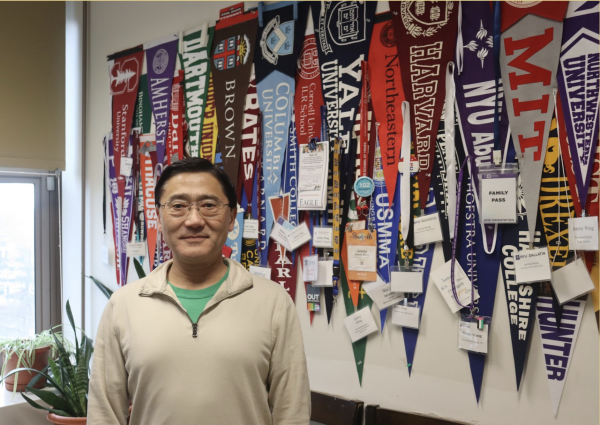Schoolwide survey administered to give staff key data to support students

On December 20, Townsend Harris faculty asked students to fill out a short survey regarding both their academic and personal experiences so far this school year. The day’s schedule was revised so that students had a full band to complete the survey. In an email sent to all students from the “THHS Staff,” students were told that the purpose of the survey is to provide “information so that [staff] can fully support you…every day.”
The survey asked questions about each student’s learning style, academic strengths and difficulties, and various personal interests such as hobbies and favorite activities or movies. Organized by the school’s “Instructional Leadership Team” (ILT), the survey was crafted to gain a brief baseline of facts about each student in the school and ensure that faculty members create a space for Harrisites to perform their best. All teachers, guidance counselors, and administrators will have access to student responses to this survey.
The ILT cited the loss of PupilPath as one reason why the results of the survey are important. Earlier this year, the Department of Education announced that NYC schools would not be using PupilPath going into the 2022 school year. English teacher Ryan Dunbar, who led the Instructional Leadership Team alongside Assistant Principal of Guidance Veronica York, said, “One of our school-wide goals is to get to know our students better, and this survey is an important step in the process… [it is] especially important now that we no longer have access to iO Classroom.” In addition to grades, PupilPath contained key pieces of biographical and academic data about each student, which was easily accessible by teachers.
“Ideally,” he said, “this centrally administered survey could replace the many different get-to-know-you surveys students take in their different classes.”
“I feel [the survey is] a great way to check in on everybody and get to know them a little more,” said junior Christelle Diab.
The survey also asked students about the rigor of their classes and if they may be feeling overwhelmed or overly challenged.
Sophomore Ragia Sultana said that this aspect of the survey was particularly helpful because it gave any struggling students the opportunity to seek educational or emotional help in a less intimidating way. “Many students don’t reach out to guidance themselves, [so] doing these ‘check ins’ are very helpful. Guidance counselors are very [supportive] as they give you a pathway or help you through whatever concern or confusion you have,” Ragia said.
Junior Hasan Raza said, “I feel that check-ins are important primarily because you never know where a student may be at the time, so the check-in can be an opportunity for one to grab a familiar hand.”
Some students did not fully see the emotional or academic benefits of the survey. Junior Maya Koniarz said, “I don’t think it will have much [of an] effect on my academic experience considering some of the questions were very trivial.”
Guidance counselors also agreed that it is extremely important for students to interact personally with them, not just through a general survey.
“We have statistical data that tells use that the incidences of mental health crises in adolescents has been up since the pandemic, and this is a trend that isn’t going away,” said counselor Jessica Graf, “so I do think it is critical for us to check up on our students in all aspects of their well-being, and I think that the survey is one step closer to doing that, but meeting with students one-on-one, creating a safe space within multiple places throughout the school—not just the guidance office—[is important too].”
“Students that are doing well academically can sometimes fly under the teacher’s radar,” said Mr. Dunbar. “Checking in with all of our students ensures that every student gets the support they need, both academically and emotionally. What’s more, attending a high achieving school like this one comes with its own unique stresses…It’s imperative that we are able to better identify students who are struggling with these stresses so that we can get them the support they need. The data we collected in the student survey can help us to do this.”
Ragia said, “[I believe that THHS] should continue to give these surveys as it can truly help students with their individual academic experiences.”
Your donation will support the student journalists of The Classic. Your contribution will allow us to purchase equipment, support our extracurricular events, celebrate our staff, print the paper periodically, and cover our annual website hosting costs.
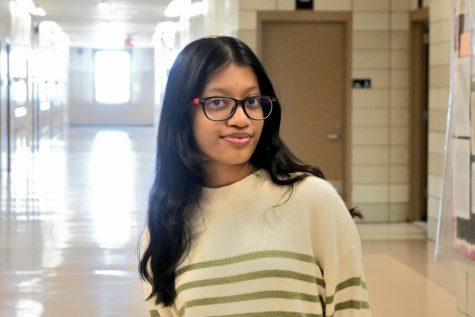
Faiza is a senior at Townsend Harris High School. She loves to listen to podcasts, read books, watch anime, and practice learning her native language....
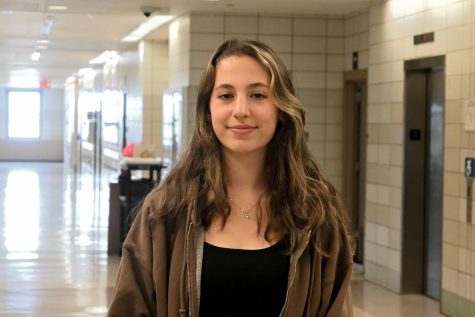
Diana is a senior at Townsend Harris High School. Her favorite subjects in school are English and science, and she enjoys reading, writing, photography,...



























